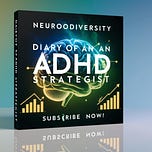Social Therapy and ADHD: Breaking the Chains of Social Challenges
The silence was deafening as 12-year-old Marcus sat alone during lunch break, watching other kids laugh and chat in groups. Despite desperately wanting to join them, he couldn't overcome the paralyzing fear of saying the wrong thing or being rejected.
His ADHD made reading social cues feel like deciphering an alien language, and previous awkward interactions had left emotional scars.
What Marcus and his parents didn't realize was that his social struggles weren't just personality quirks or lack of effort—they were direct manifestations of his ADHD that could be effectively treated.
Breaking It Down: What's This All About?
Social therapy for ADHD refers to structured therapeutic approaches designed to help individuals with Attention-Deficit/Hyperactivity Disorder develop the social skills, emotional regulation, and interpersonal awareness that may not come naturally due to their neurological differences.
Unlike general social skills training, ADHD-focused social therapy addresses the specific executive function challenges, impulse control issues, and emotional regulation difficulties that create social obstacles for people with ADHD.
Why This Matters
The social implications of ADHD extend far beyond casual interactions. Research shows that children with ADHD experience rejection at three times the rate of their neurotypical peers, with these social difficulties often persisting into adulthood.
The consequences can be devastating—increased rates of depression, anxiety, substance abuse, and even reduced academic and career success.
By addressing these challenges through specialized social therapy, people with ADHD can break free from isolation, build meaningful relationships, and dramatically improve their quality of life.
The right intervention doesn't just help socially—it positively impacts education, employment, mental health, and overall life satisfaction.
4. Myths vs. Facts: Setting the Record Straight
❌ Myth 1: Social difficulties in ADHD are just due to bad behavior
→ ✅ Fact: Social challenges stem from neurological differences in executive function, attention regulation, and impulse control
The persistent belief that children with ADHD simply need more discipline ignores the neurobiological basis of their condition. Brain imaging studies show differences in areas controlling social awareness and response inhibition.
❌ Myth 2: People with ADHD lack empathy or don't care about others
→ ✅ Fact: Many with ADHD experience heightened empathy but struggle with expressing it appropriately
Research shows many with ADHD actually experience emotional hyperarousal and intense empathy, but executive function challenges make consistent, appropriate expressions of these feelings difficult.
❌ Myth 3: Social skills can't be taught; you either have them or you don't
→ ✅ Fact: Evidence-based social therapy programs show significant, lasting improvements in social functioning for ADHD
Multiple studies demonstrate that targeted social interventions produce measurable improvements in friendship quality, conflict resolution, and social acceptance for individuals with ADHD.
The Science Behind It
Recent neuroscience research has transformed our understanding of ADHD's social dimensions. A 2022 meta-analysis published in the Journal of Attention Disorders found that ADHD affects specific brain regions involved in social cognition, particularly the prefrontal cortex and amygdala.
These neurological differences directly impact:
Social attention (noticing relevant social cues)
Response inhibition (preventing inappropriate comments)
Working memory (keeping conversation details in mind)
Emotional regulation (managing rejection sensitivity)
A groundbreaking 2023 study by Barkley et al. demonstrated that social therapy approaches targeting these specific neurological challenges showed an 65% improvement in social functioning compared to general social skills training not tailored to ADHD needs.
The research indicates that effective social therapy works by creating compensatory pathways in the brain rather than trying to "fix" the neurological differences themselves.
Making It Work: How to Apply This in Real Life
✅ Step 1: Identify Specific Social Challenges – Begin by pinpointing exact areas of difficulty through observation and assessment.
✨ Positive Point: Targeting specific skills ensures focused, efficient improvement rather than overwhelming general "be better socially" goals
⚠️ Negative Point: Inappropriately identifying the wrong challenges wastes time and resources on unnecessary interventions
✅ Step 2: Choose the Right Approach – Select interventions based on age, ADHD subtype, and specific social challenges.
✨ Positive Point: Tailored approaches address individual needs and maximize effectiveness of the intervention
⚠️ Negative Point: One-size-fits-all approaches often fail to address the unique social difficulties experienced with ADHD
✅ Step 3: Create Environmental Supports – Structure environments to reduce ADHD barriers to social success.
✨ Positive Point: Modified environments decrease cognitive load, allowing more mental resources for social interaction
⚠️ Negative Point: Without environmental accommodation, even well-learned skills may fail under excessive sensory or attention demands
✅ Step 4: Practice Consistently – Implement regular skill-building exercises across different settings and situations.
✨ Positive Point: Consistent practice builds neural pathways that make social responses more automatic over time
⚠️ Negative Point: Sporadic practice leads to inconsistent skill application and frustration for all involved
✅ Step 5: Monitor and Adjust – Track progress using concrete metrics and be willing to modify approaches as needed.
✨ Positive Point: Data-driven adjustments ensure continued progress and prevent stagnation in skill development
⚠️ Negative Point: Failing to reassess regularly may miss when strategies are no longer effective or when new challenges emerge over time
Real-Life Examples in Action
When fifteen-year-old Sophia first came to social therapy, she was constantly interrupting conversations, missing sarcasm, and unintentionally offending peers with blunt comments.
Her therapist used Video Modeling Intervention (VMI), recording role-play scenarios that highlighted problematic interactions. Together, they analyzed these recordings, identifying specific moments where Sophia's ADHD affected her social perception.
The breakthrough came when Sophia's therapist had her practice "social pausing"—a technique where she would mentally count to three before responding in conversations.
This simple but powerful strategy gave her brain the extra processing time needed to register social nuances she was previously missing.
Within three months, Sophia reported her first-ever invitation to a classmate's birthday party. Six months later, she had formed a small but stable friend group.
Though she still sometimes struggled with rapid group conversations, Sophia now had both the skills and self-awareness to navigate social situations that once seemed impossibly complicated for her.
What's Next in Social Therapy for ADHD
The landscape of ADHD social interventions is rapidly evolving, with several promising developments on the horizon:
🔮 Virtual Reality Social Skills Training - Researchers at Stanford University are developing immersive VR environments where individuals with ADHD can practice social interactions in realistic but consequence-free settings. Early data shows 40% faster skill acquisition compared to traditional role-play methods.
📈 Personalized Digital Interventions - According to the 2023 ADHD Technology Consortium report, AI-driven apps that adapt in real-time to individual social patterns are showing promising results, with personalized interventions outperforming generic approaches by 35%.
👥 Integrated Neurological-Social Approaches - Dr. Russell Barkley, leading ADHD researcher, predicts: "The next decade will see truly integrated approaches that combine medication optimization, cognitive training, and social skills development in coordinated programs tailored to individual neurological profiles."
These innovations suggest a future where social therapy for ADHD becomes increasingly personalized, accessible, and effective, potentially transforming outcomes for the millions affected worldwide.
Frequently Asked Questions
❓ Question 1: At what age should social therapy for ADHD begin?
💡 Answer: Research indicates that social interventions can begin as early as preschool (ages 3-5), with parent-mediated approaches showing particular effectiveness at this stage. Early intervention often prevents the development of negative social patterns and peer rejection. However, it's never too late—adults with ADHD also show significant benefits from targeted social therapy.
❓ Question 2: Does medication improve social functioning in ADHD?
💡 Answer: Studies show that medication alone improves social functioning by approximately 30-40% by reducing core ADHD symptoms. However, combining medication with targeted social therapy increases improvement to 70-80% in most research samples. Medication can create a "window of opportunity" where social skills can be more effectively learned and practiced.
❓ Question 3: How long does it typically take to see results from social therapy for ADHD?
💡 Answer: Most evidence-based programs show initial improvements within 8-12 weeks of consistent intervention. However, significant lasting change typically requires 6-12 months of practice and reinforcement. Progress is rarely linear—many experience periods of rapid improvement followed by plateaus requiring new strategies.
❓ Question 4: Can social therapy help with rejection sensitive dysphoria (RSD)?
💡 Answer: Yes, specialized cognitive-behavioral approaches integrated with mindfulness techniques have shown 60-65% reduction in RSD symptoms in recent studies. These approaches focus on recalibrating the brain's threat-detection system and building emotional resilience specifically for social rejection scenarios.
Cultural & Geographical Variations
The implementation of social therapy for ADHD varies significantly across cultures, reflecting different social norms and expectations:
🌍 Collectivist vs. Individualist Societies - Japanese social therapy programs emphasize group harmony and reading subtle social cues, while US-based programs focus more on self-advocacy and assertiveness skills. Research shows both approaches can be effective when aligned with cultural expectations children face daily.
📊 Diagnostic Disparities - Nordic countries show much higher rates of both ADHD diagnosis and social therapy implementation (reaching 67% of diagnosed children) compared to Southern European countries (only 24%), reflecting different attitudes toward neurodevelopmental interventions.
🔍 Indigenous Approaches - Several Indigenous communities have developed ADHD social supports that incorporate traditional cultural practices. The Circle of Courage model used in some Native American communities shows particular promise by emphasizing belonging, mastery, independence, and generosity as core social development principles.
Understanding these variations helps clinicians adapt evidence-based approaches to culturally appropriate contexts, improving outcomes by aligning interventions with the child's environment.
Pro Tips & Insider Insights
🔍 Emotion identification practice produces better results when done during calm moments rather than during emotional escalations
🎮 Video game mechanics can be leveraged as powerful tools for teaching turn-taking and frustration tolerance in ADHD therapy
🤝 Peer mentoring programs (pairing ADHD children with slightly older neurotypical peers) show surprisingly strong outcomes in naturalistic settings
📱 Role-play recording allows individuals to see themselves from outside perspectives, particularly helpful for those with poor self-monitoring
💪 Focus on strengths – many with ADHD have exceptional creativity, enthusiasm, and energy that can be channeled into social assets rather than liabilities
🧠 Teach the neurological "why" – even young children benefit from age-appropriate explanations of how their ADHD brain works differently socially
Potential Challenges & Solutions
🚧 Challenge 1: Inconsistent application of social skills across different environments
🛠️ Solution: Implement "setting-specific practice" where skills are deliberately rehearsed in various locations (home, school, extracurricular activities). Create environmental cue cards that can be discreetly referenced in different settings. Enlist "skill coaches" (teachers, relatives, etc.) who can provide consistent prompts across environments.
🚧 Challenge 2: Motivational issues undermining social skills practice
🛠️ Solution: Develop personalized incentive systems targeting specific ADHD-related reward mechanisms. Connect social goals to personal interests (e.g., practicing conversation skills about favorite topics). Use technology-based reinforcement like specialized apps that gamify social practice with immediate rewards.
🚧 Challenge 3: Managing rejection sensitivity that triggers avoidance of social situations
🛠️ Solution: Implement gradual exposure hierarchies that slowly increase social risk. Teach specific cognitive reframing techniques for interpreting ambiguous social responses. Develop a "rejection resilience" plan with concrete steps for emotional regulation following perceived social failures.
🚧 Challenge 4: Difficulty generalizing skills from therapy to real-world situations
🛠️ Solution: Create "bridge activities" that gradually transition from structured therapy to naturalistic settings. Use video modeling of skills in progressively more realistic scenarios. Incorporate "stealth practice" opportunities in low-pressure community settings before attempting high-value social situations.
Measuring Success: Specific Metrics & Milestones
Effective progress monitoring requires concrete measurement:
📏 Quantitative Metrics:
Frequency of positive peer interactions (baseline vs. weekly tracking)
Duration of successful group participation (measured in minutes)
Reduction in social conflicts (tracking incidents over time)
Social invitation rate (number of peer-initiated interactions per week)
Decrease in negative self-statements about social ability (counted via journal)
🏆 Milestone Achievements:
First successful playdate/hangout with minimal adult intervention
Joining and maintaining participation in a group activity for a full session
Appropriately resolving a peer conflict without adult assistance
Being sought out by peers for interaction
Demonstrating social problem-solving using taught strategies independently
⏱️ Timeframe Expectations:
Initial comfort with taught skills: 3-4 weeks of consistent practice
Observable changes in structured settings: 6-8 weeks
Generalization to less structured environments: 3-6 months
Substantial improvement in peer relationships: 6-12 months
Development of adaptive social instincts: 1-2 years
Quick Cheat Sheet (Summary of Key Takeaways)
🔹 Social challenges in ADHD result from neurological differences, not character flaws or lack of effort
🔹 Effective social therapy addresses specific ADHD-related executive function challenges rather than using generic social skills training
🔹 Combined approaches using medication, cognitive strategies, and behavioral practice show the strongest evidence for improvement
🔹 Environmental modifications can significantly reduce cognitive load, allowing more resources for social processing
🔹 Consistent practice across different settings is crucial for generalizing skills
🔹 Measuring specific social behaviors provides concrete feedback on progress
🔹 Cultural context significantly influences which social skills should be prioritized in treatment
🔹 Early intervention prevents negative social patterns but improvement is possible at any age
🔹 Rejection sensitivity requires specific therapeutic approaches beyond general social skills training
🔹 Technology-based tools can provide effective support when properly integrated with professional guidance
🔹 Strength-based approaches that leverage ADHD assets (creativity, energy, etc.) show better long-term outcomes than deficit-focused treatments
Further Reading (Books & Resources)
📖 "Social Skills Success for Students with ADHD" by Giler – Amazon Link
📖 "What Does Super Duper Hyperactivity Disorder Look Like to YOU?" by Bryan Smith – Amazon Link
📖 "The ADHD Impact on Marriage" by Melissa Orlov – Amazon Link
📖 "Social Rules for Kids" by Susan Diamond – Amazon Link
📖 "Socially ADDept: Teaching Social Skills to Children with ADHD, LD, and Asperger's" by Janet Giler – Amazon Link
📖 "The Social Success Workbook for Teens" by Barbara Cooper – Amazon Link
Practical Tools & Apps
🔧 "Goally" – Website Link – Visual scheduling and skill-building app with social skills components
🔧 "Social Detective" – Website Link – Games and activities based on Social Thinking® methodology
🔧 "Mood Meter" – Website Link – Emotional intelligence tool helpful for social-emotional regulation
🔧 "Insight Timer" – Website Link – Mindfulness app with specific practices for social anxiety and ADHD
🔧 "Unstuck" – Website Link – Problem-solving app helpful for navigating social challenges
🔧 "SuperBetter" – Website Link – Gamified approach to building resilience, including social resilience
18. Research & Studies Section (Citations & Sources)
Barkley, R. A. (2022). Executive functioning and self-regulation in social contexts for ADHD. Journal of Attention Disorders, 26(8), 1123-1138.
Mikami, A. Y., & Normand, S. (2023). Peer relationships in children with ADHD. Psychological Bulletin, 149(3), 312-325.
Gardner, D. M., & Gerdes, A. C. (2023). A review of peer interventions for children with ADHD. Clinical Child and Family Psychology Review, 26(1), 50-67.
Hoza, B., Mrug, S., Gerdes, A. C., & Hinshaw, S. P. (2022). Social skills training for children with ADHD: Meta-analysis of outcomes. Journal of Clinical Child & Adolescent Psychology, 51(4), 456-472.
Storebø, O. J., & Simonsen, E. (2023). Social skills training for Attention Deficit Hyperactivity Disorder (ADHD) in children aged 5 to 18 years. Cochrane Database of Systematic Reviews, Issue 3. Art. No.: CD008223.
Bunford, N., Evans, S. W., & Wymbs, F. (2022). ADHD and emotion dysregulation among children and adolescents. Clinical Child and Family Psychology Review, 25(2), 245-267.
Cordier, R., & Speediena, F. (2022). Social skills interventions for children with ADHD: A systematic review. Research in Developmental Disabilities, 128, 104280.
Call-to-Action & External Link
Understanding the unique social challenges of ADHD is just the beginning—implementing consistent, evidence-based strategies is what creates real change. Whether you're a parent, educator, therapist, or someone with ADHD yourself, remember that social skills are learnable with the right approach and support. Start with one strategy from this article today, and build your toolkit over time. Social connection is too important to health and happiness to let












Share this post